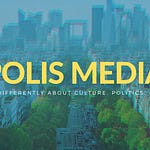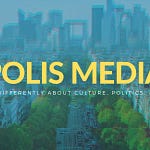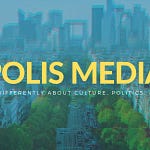Editor’s note: This podcast is part of an ongoing experiment utilizing AI technology to make academic research and complex ideas more accessible to a wider audience. The content of each episode is rooted in a carefully chosen article (or articles), which it then adapts into a conversational format to make the ideas more approachable. While the format is AI-generated, the core content is selected and shaped by the research.
For the AI-generated articles, the final text is written by the AI, but the substance comes entirely from my own reflections and ideas. Using the conversational feature of ChatGPT, I engage in a back-and-forth dialogue with the AI to clarify and develop my thoughts. The AI then composes the article based on this exchange, providing a structured, polished version of the ideas I’ve articulated. This process allows me to focus on advancing the conversation around important topics efficiently, without the need for full manual writing.
In recent years, there’s been growing recognition of the intellectual conformity that pervades academia. This conformity, driven by skewed incentive structures, peer review biases, and a culture of self-censorship, results in massive opportunity costs—not only within the academic sphere but for society as a whole. This article unpacks those opportunity costs and explores how intellectual homogeneity in higher education stifles innovation, weakens democracy, and limits our ability to solve the world’s biggest challenges.
For a more in-depth discussion on this topic, check out the AI-generated podcast above, where similar themes are discussed by our AI hosts.*
The Intellectual Cost of Conformity
Incentive structures in academia, from the pressure to publish to the availability of research funding, create a system where certain perspectives are rewarded while others are marginalized. Mitchell Langbert’s 2018 study on the political affiliations of faculty at elite liberal arts colleges found an overwhelming skew toward Democratic Party affiliation, with some institutions exhibiting an almost complete absence of Republican faculty members.
This kind of intellectual homogeneity reinforces itself through academic journals, grant funding, and hiring practices. Faculty often face pressure to conform to dominant narratives, both for career advancement and for the simple ability to be heard within their disciplines. As a result, innovation in fields like cancer research, artificial intelligence, and clean energy is constrained when risk-taking, dissenting ideas are pushed aside in favor of safer, conformist research.
By failing to encourage diverse intellectual perspectives, academia loses out on the chance to explore disruptive, transformative ideas. Think about the potential breakthroughs we could be missing because the current academic climate discourages scientists from pursuing unconventional research paths.
The Threat to Democracy and Free Thought
The implications of academic conformity extend far beyond the university. Democracy thrives on the free exchange of ideas, where dissenting voices challenge the status quo, and the best arguments rise to the top. However, when universities—which serve as a pipeline for future political, social, and business leaders—narrow the range of acceptable viewpoints, they compromise the very foundation of democratic discourse.
In today’s polarized climate, academia’s intellectual homogeneity can undermine public trust in institutions that are supposed to be objective arbiters of truth. When people perceive academia as an echo chamber that reflects only one ideological perspective, they begin to lose faith not just in universities but in other democratic institutions influenced by academia. This has dangerous consequences, as it leads to a weakening of democratic debate and a culture that silences dissent.
Free speech—the bedrock of any healthy republic—requires a marketplace of ideas, where diverse voices can engage in open debate. As intellectual conformity takes root, that marketplace shrinks, leaving us with a narrow range of perspectives and limiting our ability to think critically about the challenges we face as a society.
Innovation at Stake: Missing Breakthroughs in Science and Technology
The impact of conformity is especially alarming when it comes to science and technology. Innovation thrives in environments where free thought is encouraged, and unconventional ideas can flourish. Yet academia’s current climate discourages the kind of bold, out-of-the-box thinking necessary to tackle some of the world’s most pressing issues—like curing cancer, developing clean energy solutions, or advancing artificial intelligence.
For example, Elon Musk’s Neuralink technology and autonomous driving initiatives represent the cutting edge of technological innovation—developments that could radically change the world. These breakthroughs weren’t born out of conformist environments but from visionary individuals willing to challenge established norms. What other innovations are we missing out on because academia’s intellectual landscape discourages risk and rewards conformity?
In fields like clean energy and medical research, the stakes are incredibly high. The world is grappling with climate change, and we need breakthroughs in renewable energy storage and deployment. The same goes for medical fields, where the next major advance in cancer treatment could be just over the horizon—if only the right research was encouraged. The opportunity costs of suppressing intellectual diversity are incalculable.
The Opportunity Costs to Our Future
The overarching theme here is one of opportunity cost. By prioritizing intellectual homogeneity, we trade away the potential for groundbreaking ideas and solutions. Whether in scientific innovation, democratic discourse, or the arts, conformity limits the range of perspectives and ideas available to us. The cost of allowing this intellectual uniformity to dominate is far too high.
This doesn’t just hurt academia—it hurts all of us. As society becomes more complex and global challenges grow, we need a diversity of thought and bold, disruptive ideas more than ever. If we allow academia’s current trajectory to continue, we risk stalling progress, diminishing our ability to solve the biggest problems of our time, and weakening the very foundations of our democratic republic.
Conclusion: We Can’t Afford to Keep Paying This Price
The opportunity costs of intellectual conformity are staggering. From the breakthroughs we may never see in science and technology, to the weakening of free thought and democratic discourse, the price of maintaining this status quo is too great. To preserve our democracy, drive innovation, and foster a culture of true free thought, academia needs to break out of its ideological echo chambers and embrace intellectual diversity.
As the AI-generated podcast above explores, the consequences of intellectual conformity are not theoretical—they are real and far-reaching. We cannot afford to keep paying this price if we want to build a society that values innovation, freedom, and progress.
Listen to the podcast and join the conversation about how we can foster a truly open intellectual environment that serves not just academia, but all of society.









